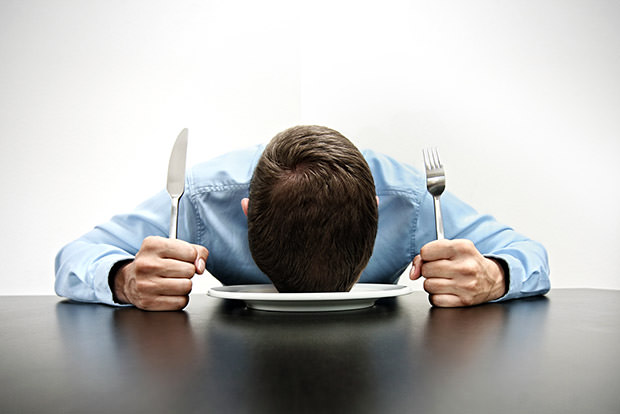
Giving in to an occasional craving doesn’t have to put an end to your fitness gains. Health professionals suggest thinking of your eating plan over several days. Small adjustments in eating and exercise after a high-calorie encounter can quickly put you back on track to reaching your weight loss goal. Here are ten steps to keep you moving in the right direction:
Rid yourself of the all-or-nothing mentality. One day doesn’t ruin everything. Weight loss is about developing a healthy relationship with eating and exercise. Allowing one mistake to cause you to eat a second piece of pie, or worse, toss your good habits out the window for the week, is not a healthy relationship. If you overindulged at an office lunch or woke up late and missed your workout, use your mistake as motivation to do better. Your next meal should be healthy, and your next workout should go as scheduled.
Focus on weekly weight loss. When you approach weight loss with a broader focus, you’ll feel less stress over isolated events. If you get off track with a high-calorie meal or a missed workout, don’t panic. According to the Centers for Disease Control and Prevention, people who lose one to two pounds per week are more successful at keeping it off. If you overeat one day, cut back on calories or exercise more to make up for it.
Pay special attention to sodium. Keep your intake between 1,500 and 2,300 mg daily, reducing the water retention and bloating you feel after a high-calorie splurge. Choose fresh, unprocessed foods, and carefully check the labels of packaged foods for sodium content.
Focus on nutrition. Trade high-calorie foods for low-calorie fruits and vegetables. This will ensure you get plenty of nutrients, including fiber, which keeps you full.
Do not starve yourself. Consuming too few calories can hinder your weight loss. When making up for a bad day, it is important that women consume no fewer than 1,200 calories per day and men no fewer than 1,700 calories.
Avoid exercise extremes. Yes, you can burn off some of the extra calories you ate, but do so safely. Over-exercise can result in soreness and injury. Soreness or injury will throw your workouts off track for an extended period, which will be even worse for your weight loss goals.
Eat regular meals. It’s tempting to guilt yourself into skipping breakfast after a high-calorie dinner with friends. Don’t do it. Skipping meals will leave you ravenous, increasing your likelihood of overeating again.
Avoid creating stress. Focusing on your mistake creates stress. Stress leads to a lack of sleep and emotional eating, which can hinder weight loss. It was one meal, one dessert, one workout. Forgive yourself and move on.
Step off the scale. Put off weighing yourself for a few days. The water retention caused by high-sodium foods can temporarily cause weight gain. There is no reason to make yourself feel worse, so check your weight after you’ve returned to healthy habits.
Evaluate your missteps. It’s important to evaluate what caused you to stray in the first place. Was it a situation you can avoid in the future? If not, plan how to approach similar situations while controlling your calorie intake.



 5 Ways to Burn 300 Calories this Weekend
5 Ways to Burn 300 Calories this Weekend
 The Best Home and Garden Chores for Burning Calories
The Best Home and Garden Chores for Burning Calories
 5 Tips for Making Exercise a Habit
5 Tips for Making Exercise a Habit
 Best Ways to Stay Safe during Exercise in Hot Weather
Best Ways to Stay Safe during Exercise in Hot Weather
 11 Tips for Exercise Motivation
11 Tips for Exercise Motivation
 Signs You Need to Increase Exercise Intensity
Signs You Need to Increase Exercise Intensity
 Common Exercise Myths
Common Exercise Myths
 Preparing for Outdoor Exercise
Preparing for Outdoor Exercise

 Pinterest
Pinterest RSS Feed
RSS Feed